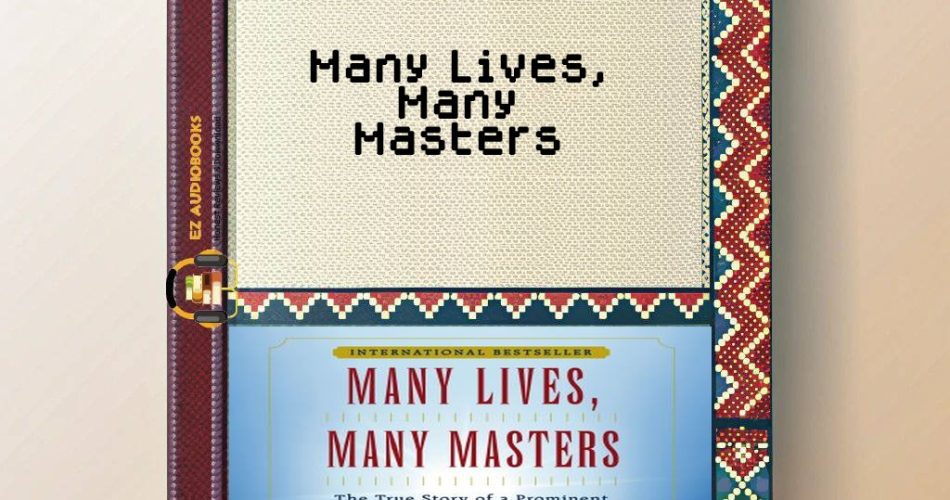Audiobook Sample
Listen to the sample to experience the story.
Please wait while we verify your browser...
- Title: Many Lives, Many Masters
- Author: Brian L. Weiss
- Narrator: Brian L. Weiss
- Length: 01:30:47
- Version: Abridged
- Release Date: 01/11/2004
- Publisher: Simon & Schuster Audio
- Genre: Non-Fiction, Health & Wellness, Psychology, Philosophy, Naturopathy & New Age
- ISBN13: 9.78E+12
There’s something profoundly intimate about listening to a book narrated by its author – especially when that author is recounting experiences that shook the foundations of his professional and personal worldview. Brian L. Weiss’s “Many Lives, Many Masters” is one of those rare audiobooks that doesn’t just tell a story; it invites you into a transformative experience. As someone who’s spent years collecting stories from around the world – whether huddled around fires in Oaxaca or driving through the vast silence of the Atacama – I can say this listening experience resonates with the same depth as those cherished moments of oral storytelling.
Weiss’s voice carries the weight of both scientist and spiritual seeker. You can hear the careful psychiatrist in his measured cadence, but also the awe of a man who’s witnessed something beyond textbook explanations. His narration has the quality of a late-night conversation with a wise friend – one who shares incredible truths with quiet conviction rather than dramatic flair. This approach serves the material perfectly, as Weiss recounts his journey from skepticism to acceptance of past-life regression therapy through his work with a patient named Catherine.
The story unfolds like peeling an onion (to borrow Manson’s apt metaphor from “The Subtle Art of Not Giving a F”uck”), revealing layer after layer of cosmic wisdom. What begins as a conventional therapeutic relationship evolves into something extraordinary when Catherine begins accessing memories that don’t belong to her current lifetime. Weiss’s clinical details ground the narrative, while the spiritual revelations lift it into profound territory. Listening to him describe Catherine channeling messages from ‘the Masters’ – spiritual entities between lives – I found myself pausing the audio frequently, just to sit with the implications.
What makes this audiobook special is how Weiss’s voice conveys his personal transformation. You can hear his emotional breakthrough when realizing these sessions contained verifiable information about his deceased son – details Catherine couldn’t possibly have known. The rawness in his voice during these passages creates an intimacy that print alone couldn’t achieve. It reminded me of those evenings in Oaxaca, where the grandmother’s stories gained power from her pauses, her occasional tremble, the lived experience behind each word.
The production quality is straightforward – no distracting music or sound effects – which keeps focus on the content. At just under four hours, it’s a concise listen, but dense with ideas that will linger. Weiss presents his case without dogmatism, inviting listeners to draw their own conclusions. His background as an Ivy League-trained psychiatrist lends credibility that distinguishes this from more sensational past-life accounts.
While the concepts may challenge materialist worldviews, Weiss approaches them with scientific humility. He doesn’t dismiss the mystery, but doesn’t exploit it either. This balance makes the audiobook accessible whether you’re a spiritual seeker, psychology enthusiast, or simply curious about consciousness. The afterword (added for this edition) provides valuable perspective on how Weiss’s work has evolved since the original publication.
Compared to other spiritual psychology titles, “Many Lives, Many Masters” stands out for its clinical foundation. Where “The Subtle Art of Not Giving a F”uck” offers pragmatic life philosophy, Weiss’s work explores the metaphysical underpinnings of our struggles. Both, interestingly, converge on the importance of values – Manson through contemporary self-help framing, Weiss through the lens of soul evolution across lifetimes.
My only critique is that some listeners might wish for more diverse case studies beyond Catherine’s. Yet this focus creates narrative cohesion, and Weiss’s other books expand on these themes. The audiobook’s brevity means complex questions about consciousness and time aren’t fully explored – but perhaps that’s appropriate for an account that fundamentally embraces mystery.
With wonder for the journey,
Marcus Rivera

